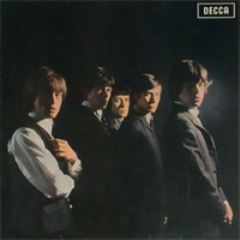The Rolling Stones - The Rolling Stones (1964)
The Rolling Stones - The Rolling Stones (1964)

Side one 1. "Route 66" (Bobby Troup) – 2:20 2. "I Just Want to Make Love to You" (Willie Dixon) – 2:17 3. "Honest I Do" (Jimmy Reed) – 2:09 4. "Mona (I Need You Baby)" (Ellas McDaniel) – 3:33 5. "Now I've Got a Witness (Like Uncle Phil and Uncle Gene)" (Nanker Phelge) – 2:29 6. "Little by Little" (Nanker Phelge/Phil Spector) – 2:39 Side two 1. "I'm a King Bee" (James Moore) – 2:35 2. "Carol" (Chuck Berry) – 2:33 3. "Tell Me (You're Coming Back)" (Mick Jagger/Keith Richards) – 4:05 4. "Can I Get a Witness" (Brian Holland/Lamont Dozier/Eddie Holland) – 2:55 5. "You Can Make It If You Try" (Ted Jarrett) – 2:01 6. "Walking the Dog" (Rufus Thomas) – 3:10 Bass Guitar, Vocals – Bill Wyman Drums – Charlie Watts Guitar – Keith Richard Guitar, Vocals, Harmonica – Brian Jones Maracas – Phil Spector (tracks: A6) Organ – Ian Stewart (tracks: B4, B5) Piano – Gene Pitney (tracks: A6), Ian Stewart (tracks: B3) Vocals, Harmonica – Mick Jagger
The Rolling Stones’ debut single was a Chuck Berry cover, their second a Lennon-McCartney tune, and third a Buddy Holly number. Their first EP was packed with similarly cynically mainstream and/or romantic fare. Only with the release of their eponymous debut LP did they reaffirm the bluesiness in which they were steeped and which had obtained them a record contract in the first place.
Released in April 1964, The Rolling Stones was – according to guitarist Keith Richards – half-comprised of rough mixes precipitously rushed onto the market by their manager (and the album’s nominal producer) Andrew Loog Oldham. It's a testament to the group’s brilliance that the result was still the best album to emerge from the early 1960s British blues boom.
It can't be seriously posited as a heavyweight artistic statement insofar as the Jagger/Richards songwriting team had yet to develop: only three of the tracks are originals. Moreover, Mick Jagger sounds like the Welfare State whitey he is.
Set against the dependency on covers and the inexperienced vocalist, however, is a truly cooking and imaginative band. Drummer Charlie Watts and bassist Bill Wyman provide a brawny frame for the intermeshing guitars of Richards and Brian Jones as the ensemble lovingly deliver some of their favourite shots of rhythm ‘n’ blues.
Between the breakneck travelogue opener Route 66 and the madcap parting shot Walking the Dog, however, the Stones crucially sidestep the mistake committed by many others on the scene in thinking that high quality is enough. The shimmering surrealism of Mona, the sensuality of I’m a King Bee, the romanticism of Tell Me and the soulfulness of You Can Make It If You Try create a variety of moods and textures that obviates ‘blueswailing’ one-dimensionality.
The album was issued as England's Newest Hit Makers in the States, with Not Fade Away (which opened proceedings) displacing Mona, and did moderately well. In Britain, its release was an event. Despite daringly featuring no artist name or title on its half-lit cover, it became the first non-Beatles album to top the charts since May 1963. The Stones had not yet achieved the “way of life” status claimed for them in Oldham’s sleevenotes, but they were well on their way.
Indeed, it was a remarkable enough record to consign to the folds of history the fact that the Stones sold out before they got cred. ---Sean Egan, bbc.co.uk
download (mp3 @320 kbs):
Zmieniony (Czwartek, 13 Grudzień 2018 19:54)








